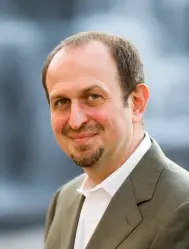2024
Content from the Brookings Doha Center is now archived. In September 2021, after 14 years of impactful partnership, Brookings and the Brookings Doha Center announced that they were ending their affiliation. The Brookings Doha Center is now the Middle East Council on Global Affairs, a separate public policy institution based in Qatar.
On June 4th, 2009, the Brookings Doha Center hosted its largest event to date on President Barack Obama’s first address to the Muslim world given from Cairo earlier in the afternoon. Two taped segments of the speech – the introduction and the portion that discussed the Israeli-Palestinian conflict – were screened at the beginning of the event. Then, Joseph LeBaron, U.S. Ambassador to the State of Qatar, provided some remarks on the speech and took questions and comments from audience members. The session was moderated by Hady Amr, Director of the Brookings Doha Center.
Amr opened the floor for discussion by expressing his personal opinion that Obama’s speech highlighted an opportunity to have an America that is engaged with the Muslim world. He then introduced Ambassador LeBaron, who commented briefly on President Obama’s speech. The Ambassador emphasized that the U.S. President’s speech indicated the importance the American government places on its relationship with the Muslim world. He underscored the U.S. Government’s commitment to reaching a peaceful resolution of the Palestinian/Israeli conflict pointing out that the President prioritized this issue from his first day in office by announcing the appointment of George Mitchell as the special envoy to the Middle East. Ambassador LeBaron echoed President Obama’s remarks about the United States forging a new beginning based on a joint partnership with the Muslim world in the fields of education, economic development, science, and technology; he also cited the celebrated history of Muslim innovation and contribution to world civilization. Ambassador LeBaron also underlined the significance of building the relationship between the United States and the Muslim world on mutual effort and respect.
Many in the audience seemed inspired by Obama’s message of renewed cooperation and the level of sincerity in his words. One attendee explained that he felt the speech embodied aspects of our common humanity, tackling political, religious, and social issues that are relevant to all. Another audience member, a young Arab student, was particularly encouraged by the speech and felt compelled to work in his own way to bridge the gap between the United States and the Muslim world. Yet another person expressed the belief that Obama’s message will really resonate with people in the region because “words matter” and these words carried enormous weight. Several times, people commented that the speech was one that will go down in history.
There were also some audience members who were skeptical of the new administration’s ability to actually follow through with the promises for such renewed engagement. One attendee expressed concern that Obama might have built up a level of expectation for new initiatives that does not match congressional support back in the United States. Another attendee asked whether a new tactic to push for international law as it relates to settlements in Israel would even be possible given the presence of some hardliners in the new Israeli government. Yet another person argued that Obama should have used even stronger language in support of the Muslim world and a more detailed Middle East peace roadmap.
The Ambassador spoke to some of the comments and questions, describing the speech as President Obama’s sincere “declaration of intent” in which he laid out for the world his hopes for the next four years. Ambassador LeBaron argued that this was not the speech for detail, but rather an opportunity for a new president to explain how he sees the relationship between his country and the Muslim world. Addressing a question posed by an audience member, the Ambassador explained that he found the speech to be decidedly not imperial in its tone, citing Obama’s statement that the United States is in the process of leaving Iraq and hopes for a security situation that will enable it to leave Afghanistan as soon as possible. The Ambassador also stressed that on the Israeli-Palestinian issue, Obama vowed to pursue peace with the all “persistence and determination” required, and that he has backed this up by choosing a diplomatic corps that is qualified to make this serious effort for peace.
Agenda
-
June 4
-
Moderator
 Hady Amr Former Brookings Expert
Hady Amr Former Brookings Expert -
Featured Speaker
JLJoseph LeBaron U.S. Ambassador to the State of Qatar
-

